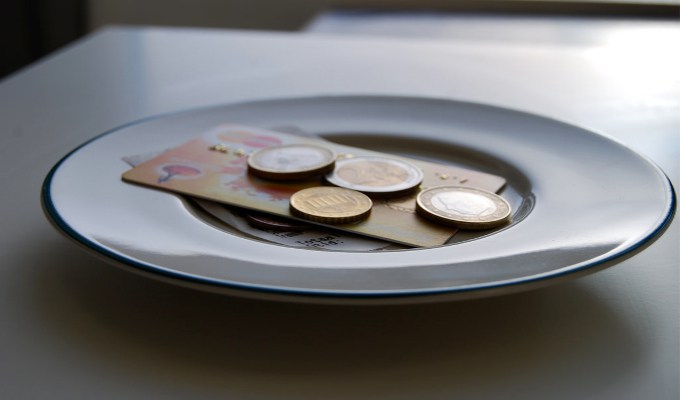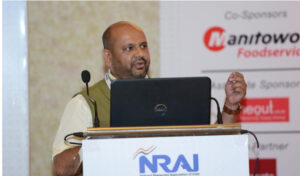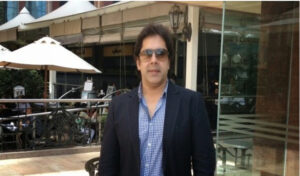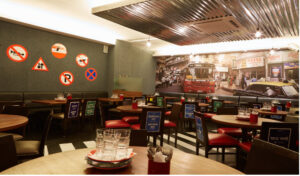Across the world, service charge or gratuity is common practice and accepted by diners as they know this is an emolument for the entire crew – front of house, kitchen, housekeeping, cleaners, security et all which works through odd hours, holidays and weekends to provide a perfect dine-in experience. The menu price covers the cost of material, rentals, utilities, licenses, other expenses and return on the investment.
QSR, home delivery, coffee chain don’t levy this charge as it is an over the counter transaction.
If the guest is not satisfied with a particular item, we anyway replace it or not charge for it. With a large loyal customer base, we feel our patrons are matured enough to pay for the product and service that they expect from our chain.
ALSO READ: Dissatisfied customers can demand service charge not be levied: Government
However, a few restaurateurs have welcomed this decision whereas others are opposing it. Here’s how the restaurant fraternity has reacted:-
1Riyaaz Amlani, President, NRAI
Inclusion of service charge in a restaurant bill is a common and accepted practice, and has been recognized as such by various concerned Central / State Government departments in various communications and public announcements for inclusion of the same in calculating the total invoice value on which taxes are to be levied.
There are even judicial pronouncements to support that ‘service charge’ can be charged by hotels and restaurants. The same has been upheld by the National Consumer Disputes Redressal Commission, in Nitin Mittal vs. Pind Baluchi, (2012) NCDRC 444; by Monopolies and Restrictive Practices Commission, New Delhi (MRTP) in 2001; and Judgments passed by Hon’ble Supreme Court in the cases of Wenger & Company and others Vs. Their Workmen (1963) and Ram Bagh Palace Hotel, Jaipur Vs. The Rajasthan Hotel Workers Union, Jaipur (1976).
It is a matter of policy for a restaurant to decide if service charge is to be levied or not. Information regarding amount of service charge is to be clearly mentioned / displayed by restaurants on their menu cards or otherwise also displayed, so that customers are well aware of this charge before availing the services and can use their discretion of not using the facility offered by the restaurant.
2Rahul Singh, CEO and Founder, The Beer Cafe
Across the world, service charge or gratuity is a common practice and accepted by diners as they know this is an emolument for the entire crew – front of house, kitchen, housekeeping, cleaners, security et all which works through odd hours, holidays and weekends to provide a perfect dine-in experience. The menu price covers the cost of material, rentals, utilities, licenses, other expenses and return on the investment.
QSR, home delivery, coffee chain don’t levy this charge as it is an over the counter transaction.
At Beer Café, we have always kept the service charge discretionary in nature. Infact, if the guest is not satisfied with a particular item, we replace it or not charge for it. With a large loyal customer base, we feel our patrons are matured enough to pay for the product and service that they expect from our chain.
3Umang Tewari, Owner, Big Fish Ventures
Big Fish Ventures has already removed service charge from all the restaurants under its umbrella as we do not believe in over-burdening our consumers. The customer is the king for us and we ensure to provide them the best service without charging a single extra penny. So, we have not been affected by the Government’s decision to make service charge optional.
4Varun Puri, Owner, Imly
This move is completely uncalled and it will impact the overall dining culture in India. The Government had earlier in its decision had supported the service charge by levying VAT and making it mandatory by charging service tax on service charge. And now suddenly changing the decision will affect the staff as tipping is not a culture in India. The restaurant staff used to earn extra money by putting the efforts to please the customers. Now they efforts will not be appreciated.
Not charging service charge makes sense in the QSR format where the food is not served on the table. At the restaurants, where the staff has been serving the food on the table deserves the service charge which goes to the staff directly. This action might prompt many fine dining restaurants to turn into self-service restaurants.
The Government should not have made it optional but should thought of some other way to make both the parties happy like reducing it to 5 per cent.
ALSO READ: The Tipping Point: The foodservice industry’s take
5Vikrant Batra, Owner, Cafe Delhi Heights
The Food and Beverage industry is one of the highest employers in India. Approximately 5.8 million people are employed by this segment. Service charge is vital for the business model and for the employees. Discretion will not only affect the restaurateurs but also the utility staff, drivers, store attendants, service staff, guards, dish washers whose livelihood largely depends upon service charge. In a uniform service charge, everyone gets benefits. Another thing to keep in mind is that once it is implemented people must be aware of the same, to avoid any kind of miscommunication. Having said that, not much can be assessed at this stage, once it is implemented only then can we really know what works and what does not.
6Inderjeet Singh Banga, Owner, The Pirates of Grill and Prankster
It is a double edged sword by the Government. The restaurants do not keep the service charge in their pockets. Instead it is divided by the staff which in turn motivates them to work hard. However, it is a good decision from the perspective of the consumer that if they are not satisfied by the services they can not pay the service charge but from the point of view of the staff it is not in their favour.
The decision should have been clear enough in the way that either the Government should have completely waived it off or make it mandatory. It is a very confusing decision where the staff will now have to more efforts to please every customers while being in a state of dilemma that they will get the service charge or not.
7Anurag Katriar, Executive Director & CEO, deGustibus Hospitality Pvt. Ltd.
Levying service charge is an established practice of several years and it has even been upheld in the court of law. Most of money collected goes to the staff and is an integral part of their incomes. Discontinuation of the same at this stage will adversely impact millions of workers and therefore we plan to continue levying the service charge as before.
8Samira Chopra, Director, Cybiz BrightStar Restaurants
At Carl’s Jr. we believe that the customer is the king. We believe in giving SUPERSTAR service to the customers. As a premium burger chain, our restaurants give best service to each and every guest irrespective of his order. The service charge should be on the complete discretion of the customer and his satisfaction. It should not be imposed on them.
Unfortunately many restaurants charge 10 per cent or more but give only an insignificant portion of the same to their employees. The restaurants should focus on giving premium services to all their guest and let the customers decide if they want to pay for the good service rendered.
We are a partial service restaurant and not a regular self help restaurant so we can ideally charge service charge. We are okay with having a low base service charge like 2 or even 5 per cent but must be purely on the customers discretion.
9Joy Singh, Co-partner, Raasta
Being from the industry it’s tough to support this move and the statement is also not clear as one can’t quantify happiness ever. Besides, the said service charge is for the management that looks after a guest from the entry door to the table as a token of appreciation and makes a part of their salary. So, by cutting or negotiating it, the law is just making it tough for a server as the minimum pay wage is not enough to survive in this nation.
10Sahil Gupta, Co-owner TabulaBeach, The Hungry Monkey, Arriba – Mexican Grill and Tequilleria
The reason why we have service charge in India is because tipping is not a part of our culture. In most other countries if someone does not leave a tip, it is actually frowned upon by the staff. In India, even if people have a good time, very few people really tip unless there is a service charge included. We believe that if a customer is not happy with his/her service, they have every right to pay a lower amount towards service charge. It is a fact all over the world that restaurant staff make a living based on tips and service charge and not salaries alone. We would be happy to remove the service charge from any bill if the customer requests so, however, we would again like to remind everyone that every employee of a restaurant, from housekeeping to the manager with everyone in between deserves some extra appreciation from customers for all the work they put in.
11Saurabh Khanijo, Managing Director, Kylin
With this step, discretion would lead to confusion as one cannot actually measure the happiness. In our part of the world, people take service as a birth-right thus do not appreciate the server. A service charge works as an incentive for the server to do a great job. In some countries like the US, gratitude is mandatory so why not in India?
12Shivam Bhaskar, Owner of Number 31 and Number 8
We are in total agreement that the service charge should be voluntary and not a forced expense. Having said that the entire front of house and back of house pay packages are based on service points. If the same becomes voluntary then the salaries will have to be renegotiated and the whole industry would go into a tizzy. This decision is double edged sword.
13Krishna Gupta, Owner, 1441 Pizzeria
Before we started our pizzeria, we had made a conscious decision as not to add a service charge to customers and have a built-in incentive system for our staff. We have not been affected by the decision, but I feel that it should be left discretionary to be paid by the customers as I would not like to give a service charge if the service wasn’t up to the mark.
14Abhayraj Singh Kohli, Owner, Grandmama’s Cafe
It was always optional, when a guest in the restaurant refuses to pay the service charge the management knows something went wrong and corrective action is taken. It helps us keep our service standards high and make sure the guests in our restaurants have a great experience. There will always be a few people in a month which will refuse the charge for no proper reason but that we will take in our stride.
15Aditya Gupta, Owner, Spiceklub, Desiklub, Quattro Ristorante and The Rolling Pin
Service charge is not something which the restaurants were keeping with themselves, as Indians tip poorly, restaurants started charging service charge which goes to the staff. Customers don’t understand this. Indian customers are very demanding when it comes to service no other restaurants in the world provide service like restaurants in India. So now even if there is a slight delay customers are going to say sorry we don’t want to pay service charge.






















